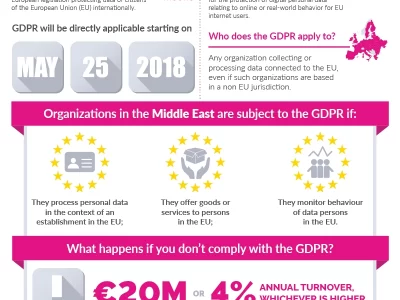Thank You for considering Yungo Legal to act as will draftsman for the drafting and registration of Your will(s) with the Wills Service Centre of the Dubai International Financial Centre in the Emirate of Dubai, United Arab Emirates to cover all assets in the UAE and in off-shore territories. Please read these terms and conditions carefully before agreeing to use our services.
-
Application
These Terms of Business establish the terms of the relationship between You and Us in relation to the provisions of the selected services. The Terms of Business shall, unless we otherwise agree in writing, apply to any services provided to You by Us in connection with the Scope of Work (as defined below) and any other service required after the completion of the Scope of Work.
-
Interpretation
For the purposes of these Terms and Conditions:
- “Application”, “App” means the software program provided by Yungo downloaded or used by You on any electronic device.
- “AML procedures” means Anti Money Laundering compliance checks.
- “Business Day” means a day other than a Friday, Saturday and Sunday or a public holiday in the United Arab Emirates.
- “You” or “you” means the individual accessing Yungo’s website or App for the purpose of obtaining the Services herein.
- “WSC” means the Wills Service Centre of the Dubai International Financial Centre.
- “DIFC” means the Dubai International Financial Centre.
- “Scope of Work” means the services selected and paid from time to time by You via the Website or via telegraphic transfer and better described under Article 3 below.
- “Terms of Business” mean these T&Cs and the Appendix 1 hereto.
- “Website” means Yungo Law, accessible from http://www.yungo.ae.
- “Yungo”, “we”, “Us” or “our” means Yungo Legal Consultancy FZE, details of which are contained in the footnote of these T&Cs, including its partners and associates.
-
Scope of Work
The Scope of Work will include the services selected from time to time by You on the Website and that may include all or part of the following:
- Assist with the draft of mirror or single wills (related to both assets and guardianship) and registration of the same with the WSC.
- Attend one meeting with You to discuss the content of complex estates;
- Attend one virtual meeting at the WSC in order to witness the signature of the wills.
- Draft of the witness statements to be duly signed by the guardian and temporary guardian.
Please note that whilst we will use reasonable endeavours to complete the above-mentioned work on time, our ability to meet any deadlines will depend on a number of factors and contingencies which may be beyond our control. In particular, if there are delays in Us receiving certain information and documents that are necessary for our work, or in receiving instructions from You, this may affect our ability to meet any agreed timescales, or the time we have to expend in order to meet those timescales; and
Please note that any governmental and semi-governmental fees and the steps to be taken to complete the matter are subject to change from time to time as per the applicable laws and regulations and that You will be responsible to make any required payment to cover any shortfall.
All services above, if selected and paid for in advance through the Website, are referred to together as the “Scope of Work”.
Any further work required following the completion of the Scope of Work shall be considered to be outside the scope of our work for the purpose of the fee quotation provided by the Website at the time of booking. Any work or instructions received by You after the completion of the Scope of Work will be regulated by these Terms of Business and hour standard hourly rates shall apply, unless You have requested a quote for such additional services and we have agreed in writing a fixed fee for such additional services.
Please note that You reserve the right to acknowledge and agree that any related fees, any other governmental and semi-governmental fees and the steps to be taken to complete the Scope of Work are subject to change from time to time as per the applicable laws and regulations and that such changes may affect our fees (as determined on the Website at the time of the booking).
-
Fees and Booking Fees
Our fees for provision of the services described in the Scope of Work shall be as per your selected services on the Website. Please note that 5% VAT applies to all our rates as better described in the Appendix 1. The quote provided is based on the information currently available to Us via your application and submission of information by You on the Website or Application as at the date of this Terms and Conditions. Our fees for the provision of the services described in the Scope of Work would be based on our standard hourly rates as indicated in Appendix 1 hereto. Our invoicing policy is set out in Appendix 1.
At the time of you requesting Yungo to provide services, You will be required to make a payment of a refundable booking fee (the “Booking Fee”). The Booking Fee shall be immediately reimbursed to You, should the firm being unable to onboard you as a client or should Yungo decide in its sole discretion that it is unable to provide the services. We will do our best to return the Booking Fee as soon as possible and to file a request with the electronic payment provider within two Business Days from our decision not to proceed with the services. Please refer to the terms and conditions on the portal of Stripe (as defined below) for their policy and terms related to refunds.
Following payment of the Booking Fee and client due diligence in accordance with applicable law, We will let You know if We are able to assist You with your matter and a client file and a tax invoice will be sent at that time and not later than three Business Days from receiving the payment of the Booking Fee via our Website. Once the client’s file has been opened and a tax invoice issued by Yungo, You will be provided with a first draft of the Will within three Business Days from Your client’s file being opened (and provided the documents and information required to copmplete the Scope of Work have been received and are considered complete in our absolute discretion). If you have selected our assistance as witnesses at the hearing with the WSC, a meeting will be scheduled as soon as practicable, depending on the availability of the WSC schedule. Should Yungo, in its absolute discretion, consider that You are not a suitable client or if the (Know You Client) KYC procedures cannot be completed for any reason, Yungo reserves the right to return your Booking Fees by declining and / or reverting the payment on the card used by You on the Website or Application.
-
Payment Options
- Our standard arrangement is for you to pay Us online by credit or debit card through the Stripe Payment Platform (“Stripe”) through the relevant link. Once the payment has been successfully made, We will receive an email with your information and start working on your selected services.
- Stripe will retain 3.5% payment for processing fee from any payment made in our favor. These amounts are included in our fees to you and not billed in addition to our fees.
- Because of the deduction made by Stripe, the amount received by Us will be the quoted amount on the Website, minus the 3.5% processing fee and this will be reflected in our final invoice.
- We will receipt the funds on our account as soon as possible and will issue an invoice (provided the compliance team has approved You as a client). Any government fees which you will pay via the Website to enable Us to book and / or make an application on your behalf with a government entity will be billed as disbursement and will not be subject to taxes, but in such cases the 3.5% processing fee will be added to the amount required to be paid to the government entity. All disbursements paid on your behalf will be detailed in your final invoice (please refer to Clause 3 above).
-
Personnel
Your work will be handled by a partner, consultant, associate, trainee lawyer, or paralegal, or team of them. We would ensure that Your work is handled by personnel with the requisite level of experience to conduct it properly and cost-effectively.
A senior member of our team will be your relationship partner (“Lead Member”), which means that she / he will be responsible for our relationship with You. A Junior Member will be assisting the Lead Member and, in case of absence or any temporary inability of the Lead Member to attend to You, the Junior Member will take the lead and attend to You until completion of the matter or until the Lead Member is back.
As the matter progresses, it may be appropriate to involve other fee-earners who specialize in particular areas of the law. We will try to avoid changing the personnel who are handling Your work but on occasions this might be unavoidable. We would discuss any significant change and the reason for it with You beforehand.
If You have any queries or concerns regarding our work, these should be raised in the first instance with the Lead Partner. Should the Lead Partner’s conduct not be reputed satisfactory, a complaint can be raised with our office manager, via (info@yungo.ae).
-
Collection and Use of Information
Yungo collects personal information, including but not limited to name, address, date of birth, passport number, mobile number, email address, city of residency, and details of Your estate, via forms filled out on Our Website and/or Application in order to provide the services selected as the Scope of Work herein (the “information”) and a variety of other data points. Yungo captures and securely stores all information collected through this service, which will be used solely for the purpose of KYC procedures, billing, communication with You, the WSC, the DIFC and providing the services under these Terms of Business as well as complaince with and enforcement of relevant contractual or legal obligations and policies.
The services and resulting documents arising from these Terms of Business depend on the information You share, and You agree that:
- certain information and particular clauses of documents created as a result of Us offering Our services to You are determined by the information You give to queries related to wills drafting on Our Webiste or Application;
- certain information is included in Your Will’s draft as a result of the Information You provide when requesting for Our services;
- You are fully and solely responsible for the information You give to Us; and
- We are not responsible for any mistake or errors that You may make when sharing Information with Us.
For the avoidance of doubt, We are not responsible for Your mistakes or errors, and as a result, You will hold Us free from liability for any loss, liability, cost, or damage that You may incur as a result of providing inaccurate information to Us during our relationship with You.
You should note that Your personal information collected via Our Website and/or Application is subject to finalization of KYC procedures and AML procedures. Only after Yungo approves and onboards You as a client, shall You be in the position to receive the services herein.
-
Information Collection and Sharing
All information collected by Yungo pursuant to the provision of these Services is transmitted and retained by Yungo. Yungo shares the Information that You provide with no party other than the WSC and the DIFC. WSC will use the Information You provide for no other purpose than processing Your Will registration through the Dubai International Financial Centre (DIFC) Court portal. The information collected by the WSC and the DIFC Court Portal are regulated by the terms and conditions as published from time to time on the website and portal of the DIFC Court.
-
Protection of Information
Yungo takes all reasonable precautions to secure the information collected through its Website and Application, and to protect such Information from loss, misuse, unauthorized access, disclosure, or alteration.
Yungo maintains reasonable security standards and procedures regarding unauthorized access to electronic information to prevent unauthorized removal or alteration of information or data. However, while We exercise appropriate standards and safeguards, no method of transmission over the Internet, or method of electronic storage is 100% secure. While We strive to use commercially reasonable means to protect Your information, we cannot guarantee its absolute security and will not be responsible for any accidental, unlawful, or unauthorized destruction, loss, alteration, access, disclosure or use of any information You have given to Us.
-
Fair Usage
You will not use our Website or Application in any manner that could damage, disable, overburden, or impair its functionality or interfere with any other user’s use and enjoyment of our services. You will not attempt to gain unauthorized access to any reports, data, service, account, computer systems or networks associated with Us. You shall not use our Website to violate any law, rule or regulation. You must comply with all Yungo’s policies and procedures regarding data access, privacy and security and shall not transmit false or misleading information. We shall not be responsible for any liabilities, costs, expenses (including reasonable attorneys’ fees), claims, demands, or causes of action whatsoever arising on account of any breach of these Terms of Business by You.
-
Confidentiality
Yungo abides by strict rules of confidentiality as applicable to Italian and French qualified advocates. According to the rules of conduct of Advocates and Legal Consultants, Yungo may not disclose any information received from You to any third parties, unless authorised in writing by You.
Yungo may, from time to time, analyse in its social media or in legal publication elements of cases that we have advised on, without disclosing Your name or specific circumstances for pure scientific and knowledge purposes. If You do not wish for Us to disclose even generic and anonymised information on Your case, please do notify Us and we will make sure not to make any disclosure.
You undertake to keep all aspects of our relationship confidential, here included any dispute that may arise between Us.
-
Termination of Engagement
The engagement hereunder may be terminated either by You or Us at any time for any reason by written notice. On our part, our professional conduct is subject to the Rules of the Ras Al Khaimah Ruler’s Court and those of the Ras Al Khaimah Investment Authority. If we terminate the engagement, we will take such steps as are reasonably practical to protect Your interests in this matter.
You may terminate your instructions to Us in writing at any time. If You do so then we would be entitled to retain Your deeds, original documents and other papers until payment of our outstanding fees, although we would try to reach a practical agreement allowing any other legal counsel whom You may have instructed to have access to those papers on an undertaking from them to pay our fees.
Whilst we reserve the right to terminate our engagement with You at any time, we would normally only do so in writing on reasonable notice and for good cause, for example if You have failed to give Us clear and proper instructions, or if You have failed to pay our bill by the due date. Again, we would be entitled to retain Your deeds, original documents, and other papers until payment of our standing fees has been received.
In any case where our engagement is terminated (whether by You or Us), You will be liable for all costs and expenses incurred or accrued in relation to the Scope of Work as at the date of termination.
-
Anti-Money Laundering/Combating the Financing of Terrorism (“AML/CFT”) Compliance
Yungo is licensed by the Ras Al Khaimah Investment Authority as a Designated Non-Financial Business or Profession (“DNFBP”) by virtue of its activities as a legal services’ provider and must therefore comply with the UAE Federal laws for the Combating of Money Laundering and Financing of Terrorism. As such, Yungo is required to conduct an assessment of the money laundering and terrorist financing risks that it faces, including in relation to the taking on of new customers and You.
For purpose of its Business Risk Assessment, Yungo shall verify the identity and assess the business relationship with You and underlining You. By signing these T&Cs, You have considered its implications in relation to the above and acknowledges and accepts its commitment to ensuring that Yungo and all its relevant staff receive the documents required for its Business Risk Assessment. Failure to assist Yungo in its Business Risk Assessment and/or if Yungo is unable to verify the identity of the Your, will cause the immediate termination (or suspension, as appropriate under the circumstances) of any business relationship before any service is provided.
In light of the above, we will be sharing a list of documents (via email) that we kindly request You to provide to Us for our records.
-
Conflicts
We should point out that Yungo represents various entities (including companies and partnerships) and individuals. It is possible that during the period when we are representing You, some of our other present or future clients might have transactions or disputes with You. You agree that we may continue to represent, or may undertake in the future to represent, existing or new cleints in any matter that is not substantially related to provision of our services to You, even if the interests of such other clients in those other matters are directly adverse to Your interests. We agree, however, that Your prospective consent to conflicting representations referred in this paragraph shall not apply in any instance where, as a consequence of our representation of the cleint, we have obtained proprietary or other information of a confidential nature which, if known to such other client, could be used by them in such other matter to Your material disadvantage.
-
Limitation of Our Role
Our role is to act as Your adviser in connection with the Scope of Work and it is not part of our role or function to give financial, technical or business advice in any manner to You. In providing our services, we would assume that Your decision to enter into any proposed business transaction or arrangement has been and would be made solely on the basis of Your own evaluation and decision. We generally do not hold funds on behalf of Clients (apart from an advance on costs). Funds so held by our firm will not earn interest.
-
Transfer of Business
If at any time during our engagement hereunder, all or a substantial part of the business carried on by Yungo is transferred to any other body corporate, partnership, firm or other entity (“Yungo Successor”), we shall notify You of the date of such transfer (“Transfer Date”). In relation to any continuing legal services we are providing to You under these Terms of Business at the Transfer Date then, with effect from the Transfer Date, the Yungo Successor would assume full responsibility and liability for the services in substitution for the partners of Yungo as though the Yungo Successor had been the party originally appointed under these Terms of Business. All fees and other sums due from You to Us on and following the Transfer Date shall accrue to the Yungo Successor as the successor in interest to Yungo. On the Transfer Date, the partners of Yungo would cease to be responsible or liable for the services provided under this engagement. In addition, in instructing Us to act for You, You agree to execute such further form of novation agreement as we may reasonably require to perfect the release of the partners of Yungo from all of their obligations and liabilities to You under this engagement in consideration for the assumption of those obligations and liabilities by the Yungo Successor in place of the partners of Yungo. We also reserve the right to open a new matter in the name of the Yungo Successor in respect of ongoing work which we are doing for You.
-
Limitation of Liability
Our liability to You in contract and in tort arising in relation to our acting for You on this matter is limited to, at our option:
- Replacing the document you used our will draftsman services;
- Supply of an equivalent document;
- Amendment of the document based on legal advice provided to you by Us;
- The payment of the cost of our services to you (provided you have paid any fees to Us).
Furthermore, you agree that:
- To the extent that we are not prohibited by law from limiting our liability, then our liability is limited included in respect of any liability that arises as a consequence of negligence;
- Subject to law, our liability to you for any matter related to the Scope of Work will not include any special, indirect, incidental or
- consequential damages or loss of profits and will not exceed the cost to you for the particular srvice which has caused you the loss or damage; and
- We are not responsible in any way for any liability, loss, damage or expense that arises directly or indirectly from any issue that occurs by any virus infecting our service;
- We do not warrant that the operation of our service will be uninterrupted or that our service is virus free or error free.
Please note that our firm maintains a professional indemnity insurance with a reputable international insurer.
-
Severability
If any provision of these Terms of Business is held to be unenforceable or invalid, such provision will be changed and interpreted to accomplish the objectives of such provision to the greatest extent possible under applicable law and the remaining provisions will continue in full force and effect.
- Communications
If you have any questions about these Terms and Conditions, You can contact us:
- By email: info@yungo.ae
- By phone number: +97172437493.
Our business hours are 9.00 am to 6.00 pm from Monday to Thursday and 9 am to 3 pm on Fridays except for public holidays. During business hours, we can be contacted by telephone or email.
-
Governing Law and Disputes
Our relationship and any dispute arising out of it shall be governed by the laws of the United Arab Emirates.
In the event of a dispute arising between Us, such dispute shall be solved amicably and in good faith between the parties through the appointment of a mediator, amicably chosen by the parties.
Where a dispute may not be solved amicably, if the dispute relates to a claim for a sum within the limits specified by the DIFC Small Claims Tribunal, then the dispute shall be referred by either party to such Tribunal. If the disputed amount is higher than the limits set by the DIFC Small Claims Tribunal, then the Court of Dubai shall have sole jurisdiction.
-
Acknowledgement
We hope our above Terms of Business are acceptable to You. By clicking “Yes”, I acknowledge that I have read the Terms of Business and understand and will comply with them. I acknowledge that by Clicking “Yes”, I have accepted the Terms of Business subject to Yungo’s KYC and AML procedures. For avoidance of doubt, when You place your order for any wills related service, you agree to read the relevant terms and conditions carefully.
I understand that any violations of these Terms and any criminal activity will result in immediate suspension and/or termination of my engagement with Yungo and that I may be subject to administrative or civil action as allowed by law, or criminal prosecution.
I acknowledge that by Clicking “No”, I understand that I have chosen not to accept the Terms of Business, and as such Yungo doesn’t have any obligation or liability whatsoever towards You. Moreso, You will not be able to use Our services.
























































